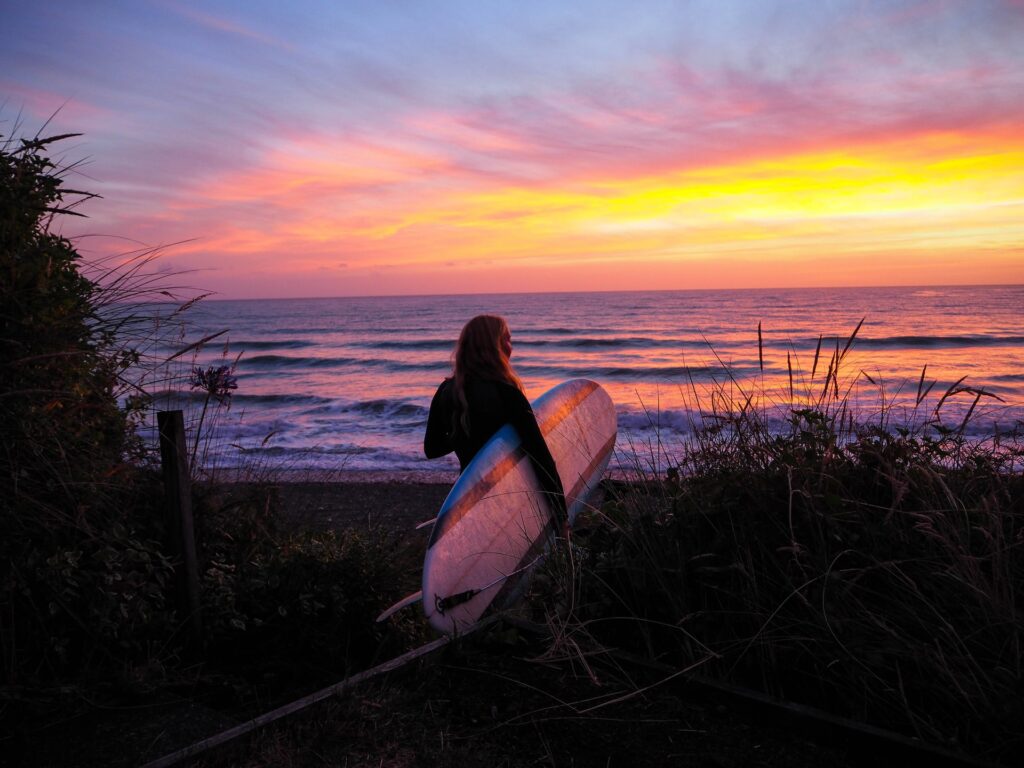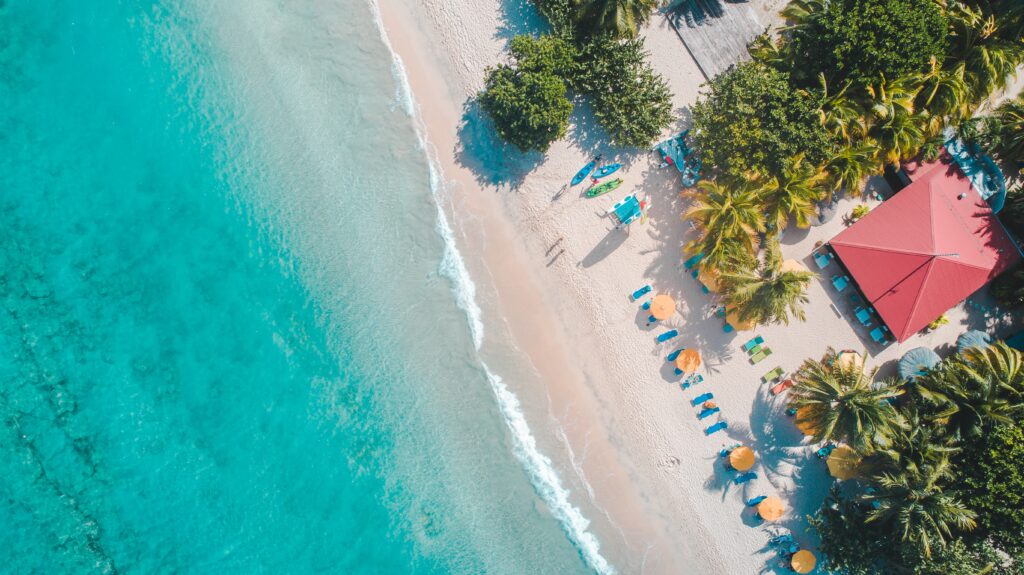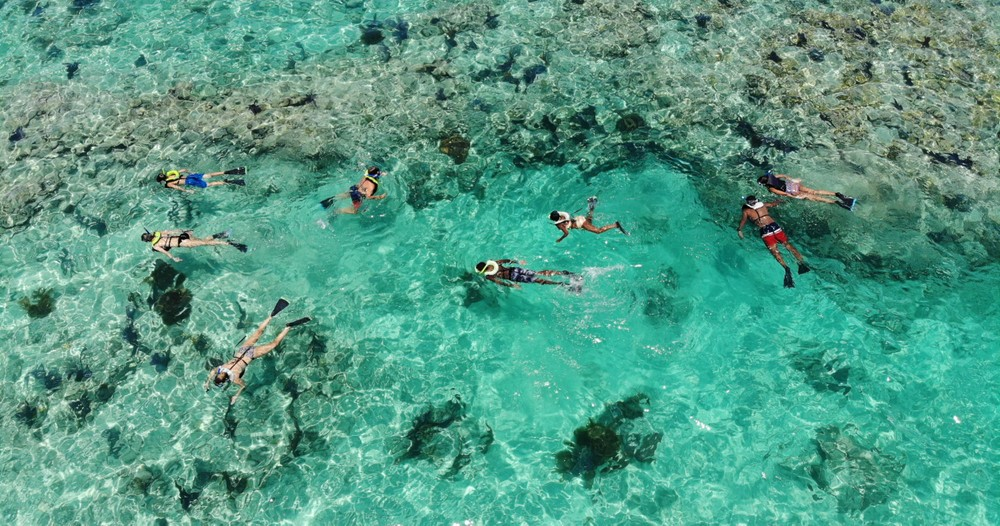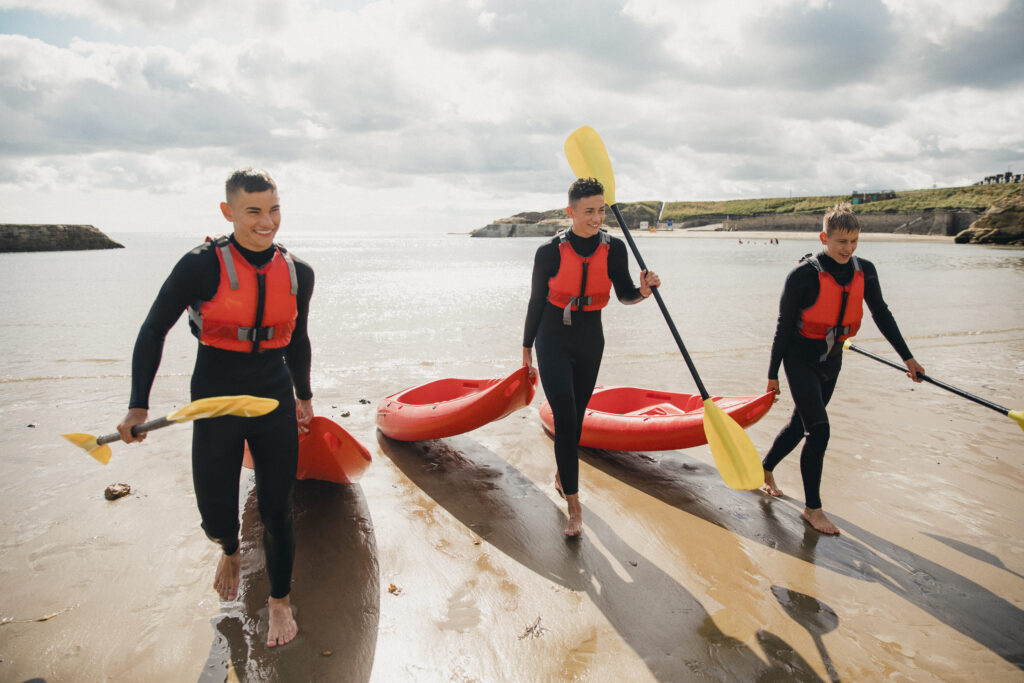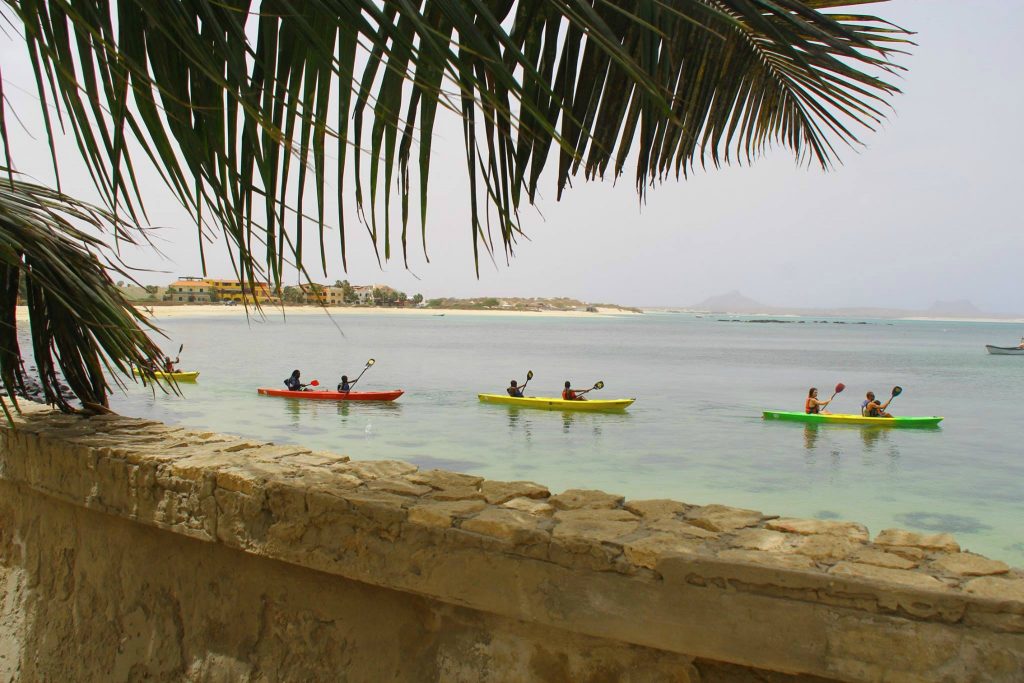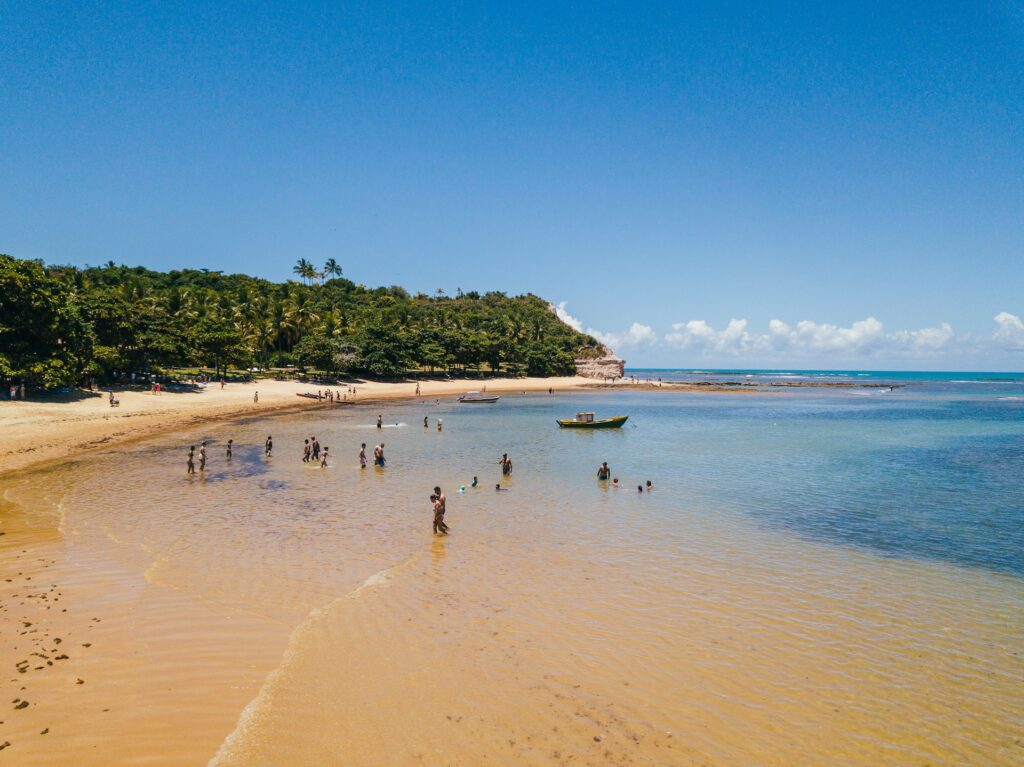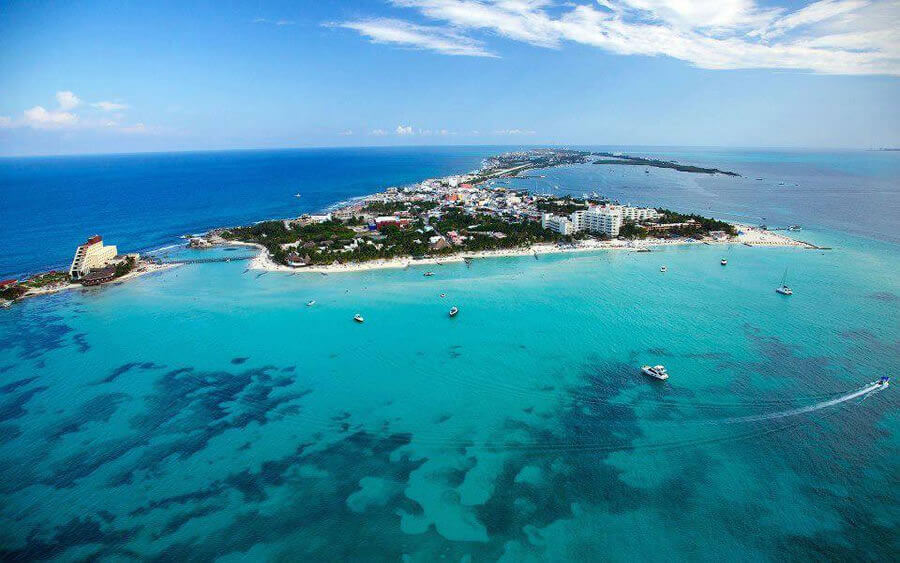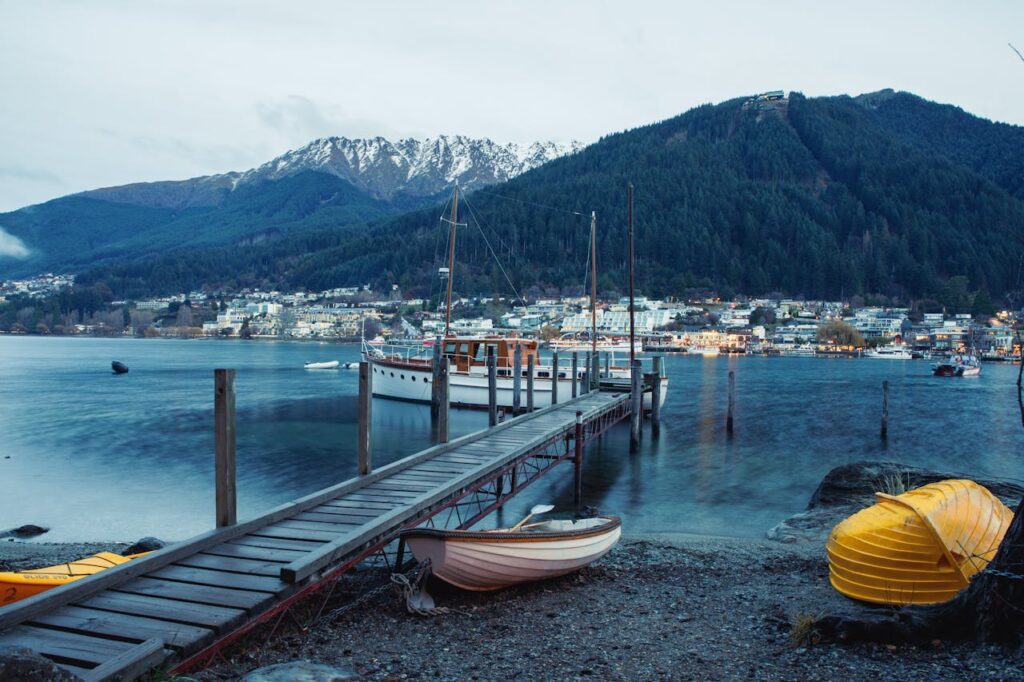There’s nothing better than waking up pre-dawn with only one thing on your vacation itinerary: surfing. As painful as those first few moments of wakefulness are, getting up early and driving out to your favorite spot in the early hours of the morning will reward you with fewer crowds and lighter offshore winds.
However, waking up before dawn does take a toll on your body — particularly if you’re used to getting up at a much later hour or you are surfing in a different part of the world like Greece or Spain. This alone puts plenty of surfers off and often results in sub-optimal performance when you do make it to the shoreline.
So, to get the most out of the day’s waves, you need to create the perfect morning routine to prepare for a day of surfing.
Nailing the Night Before
Any good morning routine starts the night before. That means you have to get all your gear in check before you hit the hay, and should get at least 7-9 hours of sleep.
Before you start to slow down for the night, make sure that you’ve got your gear in check and everything is in complete working order. Of course, body surfing boards are lighter and easier to pack, but you still need to check the gear you’ll use before and after your time in the water.
As a surfer, taking a proactive approach to sleep is vital for your performance the next day. Research shows that sleep deprivation can contribute to poor cognitive processing, slow your reaction times, and make you prone to mood swings during athletic performance.
You can improve the quality and quantity of your sleep by creating a surf-day-specific sleep routine. This should involve cutting out any blue lights (phones and TVs) at least an hour before you go to bed and practicing deep breathing or meditation to slow your somatic system and make it easier to fall asleep at an unusually early hour. You can also drink warming tea, and start to visualize the next day’s breaks.
Yoga and Mobilization
Waking up early never feels great. No matter how much sleep you get, you should expect to feel groggy and a little discombobulated.
It’s fine to feel “off” when you’re pulling on your boardshorts or drinking your first cup of joe. But you need to shake off the fog of sleep long before you zip up your wetsuit and hit the waves.
The best way to create a mind-body connection early in the morning is to engage in a surfing-specific dynamic warm-up to increase focus and reduce the risk of injury. This routine shouldn’t be too strenuous, as you’ll need your strength later when you’re surfing, but it should activate your central nervous system and leave you feeling limber.
A short burst of light aerobic exercise is a good way to start your warm-up routine. This can include any easy exercise you enjoy like jumping jacks, bodyweight squats, a very short jog, or a few lunges. The point is to raise your heart rate a little and add warmth to your body so you don’t injure yourself during a surfing-specific warm-up.
Once you’ve broken a light sweat, try out some of the best yoga poses for body surfers. These poses include low lunges, downward-facing dog, planks, and pigeon poses. These stretches warm up your core, hips, and shoulders, which will allow you to surf with greater grace and strength.
Food and Nutrition
A surfer’s diet is key to their performance in the ocean. Icons like Kelly Slater follow fairly strict, whole food diets fueled by fats from chia seeds, avocados, and coconuts. While we could all learn a thing or two from the GOAT, reality might dictate a slightly different diet from pro athletes.
In all likelihood, you probably start your morning with water and a cup of coffee. While it’s best to delay your coffee intake a little, there’s no point denying yourself a little caffeine boost when rising early.
However, you need to be aware that coffee is very acidic, so you need to eat foods that pair well with coffee to avoid acid reflux. These can include slow-burning, high fiber foods like porridge and berries, and low-calorie options like poached or hard-boiled eggs. The key is to choose foods that aren’t processed or high in sugar, as these will burn fast and leave you feeling light-headed.
The amount of water you need to drink depends on your preference, but you should try to take in between 0.5-1 L before you leave the house. This is because dehydration is linked to poor cognitive function and can negatively impact your motor coordination.
It’s also worth noting that your at-home or hotel water quality might not be up to snuff. Depending on the severity of the problem, poor water quality can cause conditions ranging in severity from an upset stomach to diarrhea and vomiting — two conditions that are sure to keep you sidelined on the beach. Eliminating this risk is fairly easy: just pick up an affordable water filter from a local store and test your water quality if you notice a foul smell.
You should also pack a little extra food with you for consumption after surfing. This doesn’t have to be a full meal, but a snack like chocolate milk, berries, or avocado can help your body recover in time to surf again later in the day.
Conclusão
The perfect day of surfing starts the night before. You need to get at least 7 hours of sleep before getting in your car and heading to the coast and should have everything ready to go so you can focus without fretting about finding car keys or wetsuits.
Start to warm your body up before sunrise. This will allow you to maximize your time in the water once day breaks, and ensures that you won’t pull a muscle while catching the first few waves of the day. It’ll also improve your balance on the board, as a short yoga session helps develop a mind-muscle connection.
You can also optimize your time in the water by eating a slow-burning, low-calorie breakfast an hour or so before you start surfing. Foods like avocado, berries, or oatmeal will give you a sustainable source of energy to draw from while you surf, and won’t make you feel ill when you have to duck dive or if you take a spill.
